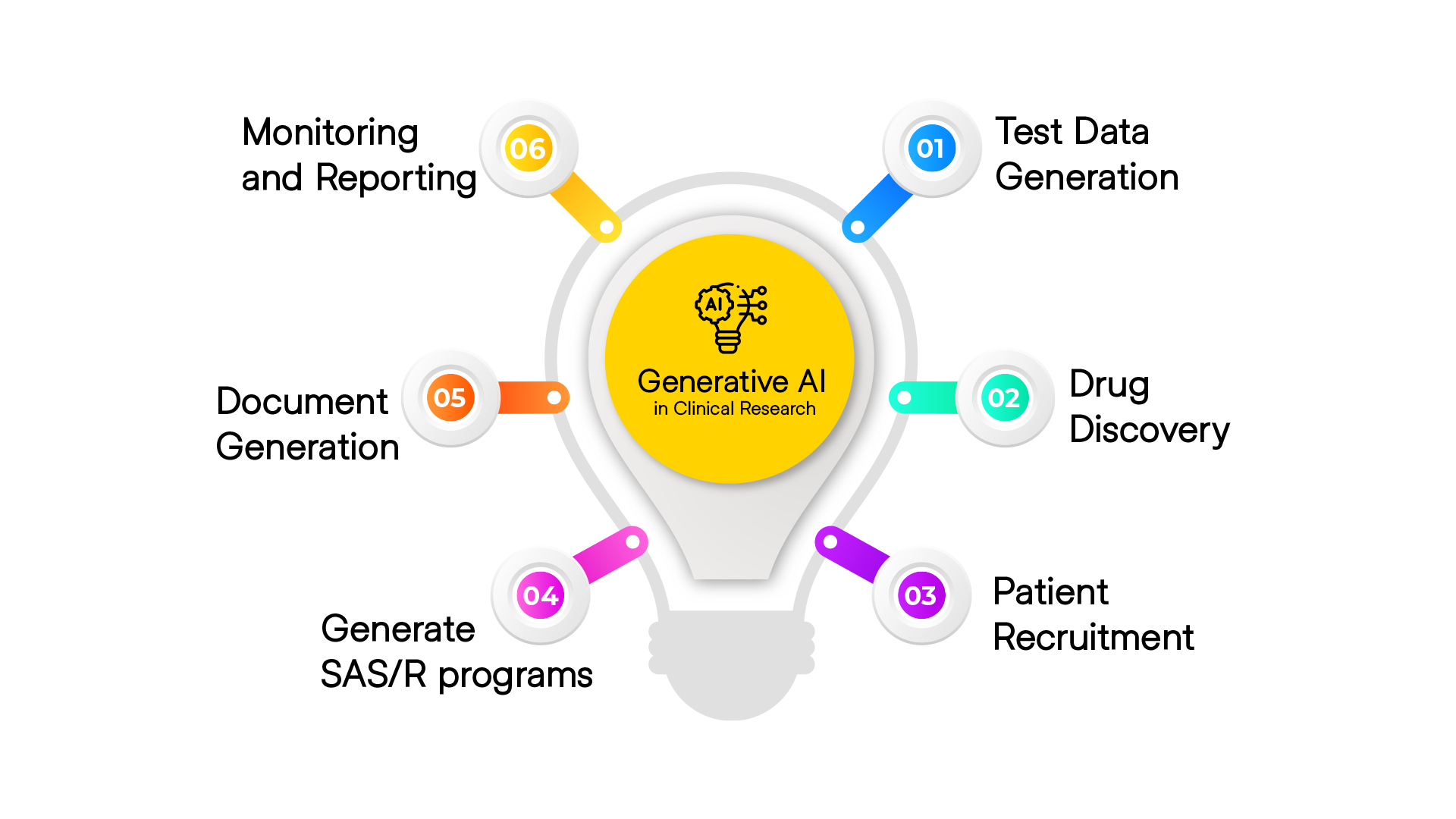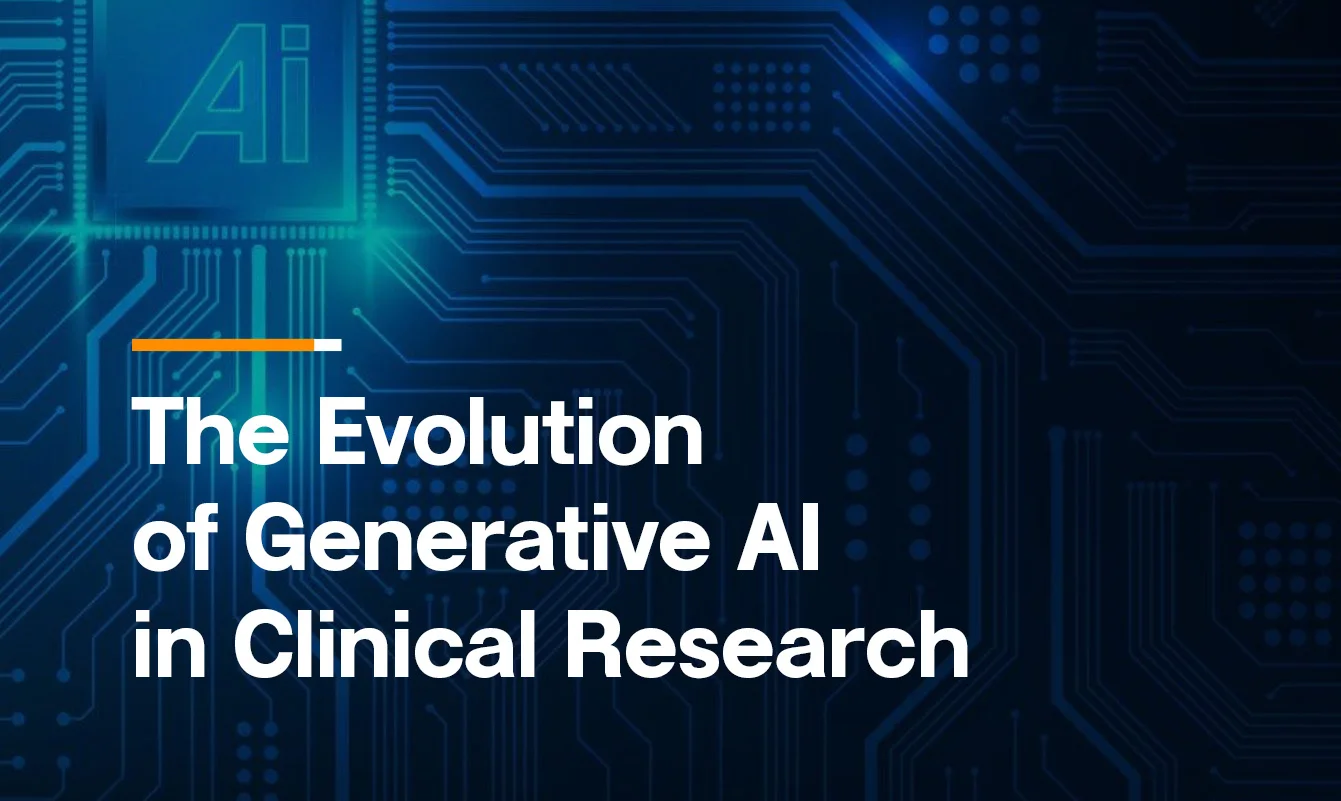Introduction
In the early years, your phone’s predictive text made you wonder, then came Gmail’s Smart Reply feature that utilizes machine learning to provide one-sentence responses. Since then we have come a long way, all thanks to Generative AI or GenAI. This technology is now capable of creating art, composing coherent paragraphs, writing code, and even assisting scientists in clinical research. But what exactly is Generative AI, how has it evolved, and what role can it play in clinical research? Let’s delve deeper!
What is Generative AI?
Generative AI, in simple terms, is a type of artificial intelligence that can create things on its own, like writing text, generating images, or even composing music. It’s like having a computer program that can come up with new ideas and create content without human input. Generative AI learns from existing data and uses that knowledge to generate new and creative content, making it useful in various fields, from writing stories to designing artwork.
The Evolution of Generative AI
The Early Days
The initial forms of generative AI were very basic. It could barely suggest some random words and generate single sentences based on traditional machine learning algorithms which were not very useful. The main challenge was to make these systems ‘learn’ like a human does. Examples are the phone text and Gmail.
Deep Learning and Neural Networks
The innovation in AI has advanced rapidly with the advent of deep learning and neural networks, which mimic the human brain’s structure and functions. This allowed AI models to ‘learn’ from data much more efficiently.
GPT and Beyond
Fast-forward to today, and we have mind-bogglingly advanced models like GPT (Generative Pre-trained Transformer). These models can write articles, hold a conversation, keep contextual understanding, provide multilingual support and even undertake logical reasoning.
Capabilities
So, what can modern Generative AI do?
- Content Creation: Write articles, and stories, or even generate artwork.
- Data Simulation: Generate realistic datasets for testing.
- Language Translation: Translate languages with high accuracy.
- Write Code: It can write new code, optimize the existing code, and debug code.
- Create Data Visualizations: Helps in creating the visualizations for the given dataset.
The Future Ahead
As promising as Generative AI is, it remains in its infancy, and we’ve barely scratched the surface. It’s very similar to exploring the capabilities of the human brain; we have yet to discover its full potential. Unlocking meaningful and consistent responses from Generative AI requires asking the right questions or providing the proper prompts. Organizations worldwide are recognizing the importance of Generative AI and the pivotal role of prompt engineers. These specialized individuals possess the necessary skills to interact with AI effectively, ensuring relevant and accurate responses.
With this exciting landscape in mind, let’s contemplate what the future holds:
- Ethical Considerations: As AI gets better at generating content, questions about misinformation and data privacy will become more crucial.
- Collaboration with Humans: AI will work alongside humans to create even more sophisticated content.
- Adaptability: Future AI will adapt to individual user needs more efficiently.
Generative AI in Clinical Research
Generative AI holds the potential to revolutionize the healthcare industry, especially in the realms of clinical research and trials. Some areas where it can make a significant impact include:

Conclusion
Generative AI has come a long way from its humble beginnings. With its ever-expanding capabilities, it promises a future where machines can aid human creativity and problem-solving in unprecedented ways. The potential AI applications in clinical research and trials are particularly exciting, promising faster, more efficient, and more ethical healthcare solutions.



